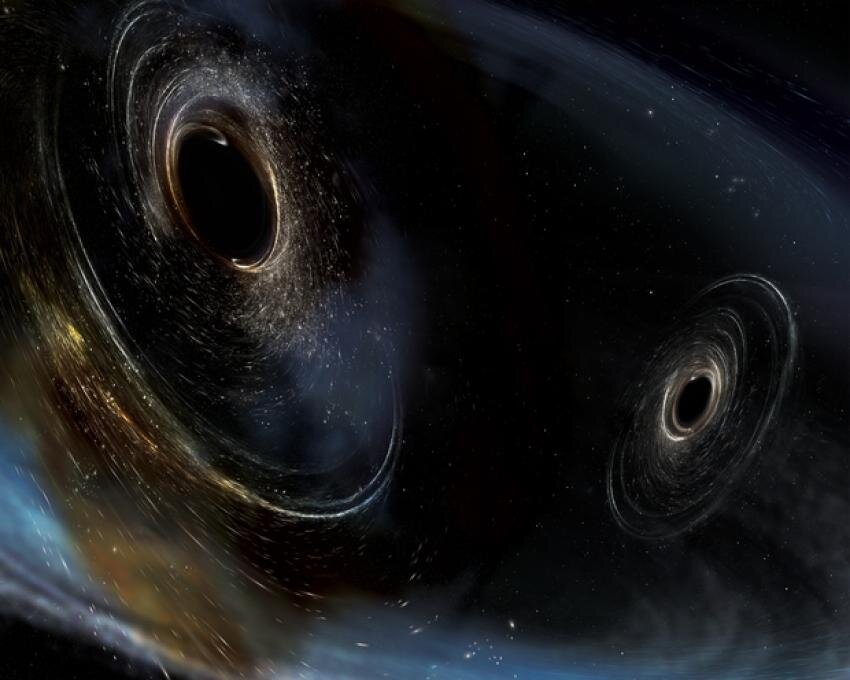An international team of cosmologists has made an intriguing discovery using computer simulations, suggesting that gravitational wave observations from merging black holes could provide insights into the true nature of dark matter. The findings, to be presented at the 2023 National Astronomy Meeting by Dr. Alex Jenkins from University College London, have the potential to revolutionize our understanding of the cosmos.
Dark matter is considered one of the biggest puzzles in modern cosmology, constituting approximately 85% of all matter in the universe. However, its underlying composition remains a mystery. Cosmologists are unsure whether dark matter particles interact with other particles, such as atoms or neutrinos, or if they simply pass through unaffected.
To investigate this, the team used computer simulations to study the production of gravitational wave signals in simulated universes featuring different types of dark matter. The simulations revealed that counting the number of black hole mergers detected by future observatories could unveil whether dark matter interacts with other particles. This, in turn, could provide crucial insights into the composition of dark matter.
The researchers propose an indirect approach to measure the abundance of galaxies formed in dense dark matter regions called haloes. If dark matter particles collide with neutrinos, the structure of dark matter becomes dispersed, resulting in fewer galaxies. However, directly observing these missing galaxies is challenging due to their small size and vast distance from us, even with advanced telescopes.
Instead of targeting the missing galaxies directly, the scientists suggest using gravitational waves as a means to indirectly measure their abundance. Their simulations indicate that models where dark matter collides with other particles result in significantly fewer black hole mergers in the distant universe. Although this effect is currently beyond the detection capabilities of existing gravitational wave experiments, it will be a primary focus for the next generation of observatories that are currently being planned.
The researchers hope that their approach will inspire new ideas for utilizing gravitational wave data to explore the large-scale structure of the universe and shed light on the enigmatic nature of dark matter.
Dr. Sownak Bose from Durham University emphasizes the importance of exploring different avenues to understand dark matter fully. He believes that gravitational wave astronomy provides an opportunity to not only investigate dark matter but also study the formation and evolution of galaxies more broadly.
Markus Mosbech from the University of Sydney adds that gravitational waves offer a unique window into the early universe, as they can travel through the cosmos unimpeded. Future interferometers will possess the sensitivity required to detect individual events from vast distances.
Professor Mairi Sakellariadou from King’s College London highlights the significance of third-generation gravitational wave data in testing the current model that describes the universe’s evolution and uncovering the unknown nature of dark matter.
Source: Royal Astronomical Society

